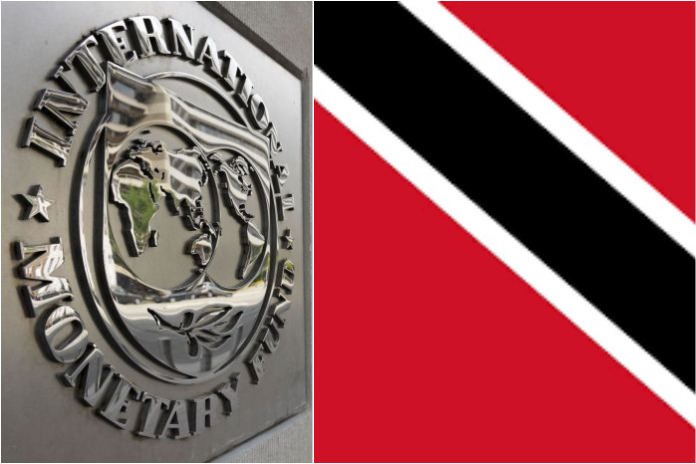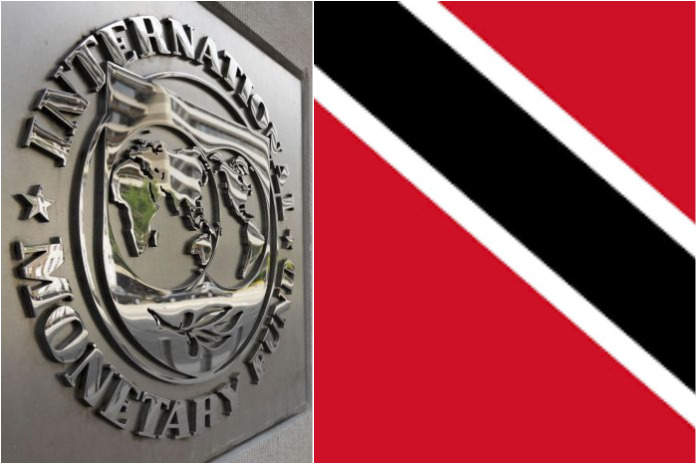PORT OF SPAIN, Trinidad – Trinidad and Tobago faced unprecedented challenges in 2020-21. The combined effects of COVID-19, energy production cuts, and price shocks pushed the economy further into recession. The authorities’ decisive policy response helped contain COVID-19’s spread, protect lives and livelihoods, and pave the way for a strong recovery. The immediate priorities are to accelerate vaccinations and support the economic recovery. Once the recovery is firmly in place, policy attention should focus on reducing public debt levels and rebuilding fiscal buffers, supported by a credible fiscal framework. The Central Bank should remain vigilant to any buildup of financial vulnerabilities. Structural reforms remain vital to support sustainable and inclusive growth.
Unprecedented challenges in 2020-21
- COVID-19, energy production cuts, and weak global demand derailed an incipient recovery. Stringent COVID-19 containment measures severely impacted non-energy domestic activity. Energy production declined significantly in 2020 and further in early 2021 due to unanticipated maintenance activity in some energy facilities and the closure of several petrochemical plants. Combined with weaker global demand and the drop in energy prices in 2020, these factors substantially lowered energy exports and revenues. Consequently, real GDP contracted by 7.4 percent in 2020 and is estimated to further contract by 1 percent in 2021. After narrowing in 2020, the current account surplus largely rebounded in 2021. Inflation remained mostly subdued during 2020-21, though the recent surge in international food and energy prices has pushed it up to 2.2 percent by July 2021.
- The authorities acted decisively to contain the pandemic. Containment and health measures to fight the virus limited the number of cases and fatalities despite waves of infections. Progress on vaccination efforts is ongoing, with about 45 percent of the targeted population fully vaccinated as of November 15, 2021. Moreover, the government introduced a fiscal policy package of about 4 percent of GDP to help the most vulnerable, employment, and firms, while the Central Bank of Trinidad and Tobago (CBTT) eased monetary and financial sector policies to ensure adequate liquidity and preserve financial stability.
- The fiscal deficit and public debt rose sharply.The overall fiscal deficit widened to 11.6 percent of GDP in FY2020 from 3.7 percent of GDP in FY2019, driven mostly by lower energy tax proceeds and outlays to mitigate the pandemic. At 10.1 percent of GDP, the overall fiscal deficit in FY2021 remained high due to continued weak revenue performance. As a result of the large deficits and the deep GDP contraction, central government debt rose sharply from 45.4 percent in FY2019 to 66 percent of GDP in FY2021. Public debt rose to 87 percent of GDP, significantly surpassing the government’s soft public debt target of 65 percent of GDP.
Outlook: Strong recovery subject to high uncertainty
- A strong economic recovery is projected for 2022. Real GDP growth in 2022 is expected at 5.7 percent, reinforced by the continued policy support and the anticipated recovery in oil and gas production. Still, output would remain below pre-COVID-19 levels well into the medium-term. With demand pressures contained, headline inflation in 2022 is projected at about 2.4 percent. The current account surplus will remain high over the medium term, supported by the recovery of energy exports, and foreign reserves would be at around 7 months of imports.
- While the fiscal deficit is expected to narrow, public debt will remain high. The fiscal deficit is projected to narrow to 7.5 percent of GDP in FY2022, reflecting a combination of higher revenue mobilization and modest spending cuts. Over the medium term, the fiscal deficit is projected to gradually narrow and reach balance by FY2027. Central government debt will peak at about 69 percent of GDP in FY2023 and gradually decline, while public debt would remain above the soft target of 65 percent of GDP over the projection horizon.
- Risks to the outlook are tilted to the downside. The emergence of new virus strains could derail the global recovery, which would likely weaken global energy demand and prices, thus intensifying the economic impact on Trinidad and Tobago. Unexpected supply-chain or logistics issues could affect levels of energy production. The lingering effects of the recession could exacerbate financial sector risks. On the upside, stronger-than-projected global recovery could result in higher energy prices, improving the fiscal and external positions. Faster containment of the pandemic and the implementation of key structural reforms would boost non-energy sector growth.
A sustained and inclusive recovery requires cohesive policy action
- Defeating the pandemic and supporting the economy are the immediate priorities. The policy support measures – including vaccine rollout – should continue providing targeted support to the most vulnerable sectors to minimize economic and social scarring until the economic recovery is well underway. The authorities are encouraged to publish a COVID-related spending report and prepare a contingency plan if downside risks materialize. At the same time, careful pacing and policy coordination will be essential to withdraw support gradually and avoid undermining the recovery.
- The envisaged government expenditure envelope in FY2022 budget is appropriate . The government plans to keep nominal current expenditure at last year’s level while increasing capital expenditure to restore economic growth. The availability of fiscal buffers allows continued temporary high spending to mitigate the effects of the pandemic. The authorities are encouraged to increase the execution rates of capital investment to further support activity.
- The current accommodative monetary policy is appropriate to support the recovery. The cuts in the policy rate and reserve requirement and the temporary relaxation of the regulatory treatment of restructured loans usefully complemented fiscal support during the pandemic and kept liquidity in the system stable. Going forward, the CBTT is encouraged to remain data-dependent and be ready to alter its stance should inflationary pressures develop, capital outflows intensify, or the recovery falters.
Reforms to accelerate and achieve sustained and inclusive growth
Strengthening the fiscal policy framework
- Once the recovery firms up, a growth-friendly and inclusive medium-term fiscal adjustment plan is essential to reduce public debt and rebuild buffers. Given that energy-related income is volatile, and Trinidad and Tobago’s energy resources are exhaustible, there is a need for the government to rebuild fiscal policy space and ensure adequate savings for future generations. The adjustment needs to contain a mix of tax reforms and expenditure rationalization. Additional revenue could be generated through tax policy reforms and strengthening tax administration. In this regard, the mission welcomed the recent enactment of the gambling tax bill and encouraged speedy implementation of the property tax and the establishment of the Revenue Authority. On the expenditure side, streamlining transfers to SOEs, improving public spending efficiency, phasing out subsidies, and reforming public procurement and publishing information on the beneficial ownership of public contracts, would support fiscal consolidation, enhance transparency and accountability.
- Strengthening the fiscal policy framework will enhance the credibility of the fiscal policy and support the adjustment plan.Adopting a well-designed medium-term fiscal framework (MTFF) would strengthen multi-year fiscal discipline, avoid procyclicality in fiscal policy, and mitigate risks. Adopting a formal fiscal rule could help support the accumulation of financial buffers during periods of high energy prices and delink expenditure from energy revenue volatility while ensuring the transfers of funds into and out of the Heritage Stabilization Fund (HSF) be integrated with the MTFF. Developing a debt management strategy would guide financing decisions and help assess the implications of alternative financing options. Broadening the coverage of complete fiscal data beyond the central government would ensure a comprehensive assessment of the government’s impact on the economy and any attendant risks.
Modernizing monetary and exchange rate policy
- The mission underscored the need for an appropriate policy mix to support the exchange rate regime and called for the removal of restrictions on current international transactions. The authorities are encouraged to modernize FX and money market infrastructure to reduce inefficiencies and imbalances to support the sustainability of the existing arrangements. Looking to the future, greater exchange rate flexibility would reduce the need for fiscal policy adjustments to restore external balance and create room for more countercyclical monetary policy. The mission encouraged the authorities to remove all restrictions on current international transactions while providing sufficient FX to meet demand for all current international transactions.
Safeguarding financial stability and improving financial markets
- The financial sector has remained stable, but the CBTT should be vigilant for signs of any buildup of vulnerabilities. Banks have remained well-capitalized and liquid despite a decline in profitability and a recent slight increase in non-performing loans. The financial system faces a rise in household debt, sovereign exposure, and natural disaster risk (including climate-related shocks). As loan moratoria may have prevented some loans from becoming delinquent, the mission recommended the CBTT to conduct timely and forward-looking assessments of banks’ asset quality and encourage increases in provisioning, if necessary.
- The regulatory and supervisory framework should be further strengthened. The mission welcomed the authorities’ progress in addressing the 2020 Financial Sector Assessment Program (FSAP) main recommendations, but further efforts are needed to enhance the financial system’s resilience. In particular, the CBTT is encouraged to make progress in tackling identified weaknesses in the supervisory framework, including strengthening the supervisory independence, resources, and regulatory powers of financial supervisors and overhauling supervision of non-bank entities.
- Progress in strengthening the anti-money laundering and combating financing of terrorism (AML/CFT) framework is welcome but further actions are needed. The removal of Trinidad and Tobago from the Financial Action Task Force (FATF) monitoring list in February 2020 is commendable. The authorities are encouraged to make further efforts to strengthen the AML/CFT framework, including registering beneficial ownership, finalizing amendments to the public procurement act, and adopting risk-based AML/CFT supervision. It is also essential to make similar progress on resolving issues related to the EU blacklist and the OECD’s Global Forum requirements on tax transparency and exchange of information.
Promoting inclusive and sustainable growth
- Comprehensive structural reforms are key to promoting the non-energy sector and boosting potential growth. Given the economy’s heavy dependence on energy, policies to develop the non-energy sector are critical to support medium-term inclusive growth and enhance resilience. In this regard, reforms to remove obstacles to doing business, improve education and vocational training to help address skills mismatches and boost productivity, and stimulate entrepreneurship will be important. The authorities’ recent initiative to support SMEs and their efforts to enhance the transition to the digital economy are steps in the right direction.
- Efforts to build a climate-resilient economy should be intensified. The authoritiesexpressed their commitment to reducing emissions by 15 percent from power generation, transportation, and industrial operations by 2030. To meet this target, they have started to implement a fuel-switching program in the transportation sector and plan to increase the renewable energy component of power generation. Upgrading climate-resilient infrastructure and the regulatory framework for green financing and renewable energy are warranted.
- Bridging data gaps would make policy decisions more effective. The recent launch of the National Summary Data Page (NSDP) under the IMF’s e-GDDS, is an important step and the mission recommended adhering to its standards. More generally, the authorities are encouraged to reduce publication gaps and overhaul national statistics, emphasizing national accounts, labor market, household survey, and capital flows.




